Today, I'm Throwing Myself Into The Ring
This is what the future of this little piece of the Internet looks like.
I spent the lockdown of 2020 alone in a two-bedroom flat with sparse furniture and a bed I barely slept on. Early into the lockdown – between my trips from my desk to the kitchen and the little natural light seeping into the house – I had a bright idea.
Actually, two.
The first idea started with a concept note I wrote in December 2019. It was a simple idea – make every Nigerian newspaper ever published accessible to everyone online. I called it Archivi.ng.
The second idea was small by design. I wanted to carve out a space on the internet to chase my curiosities. And so, like everyone else stuck at home, I created a substack and called it Vistanium.
Both things have now taken on a life of their own, going from fledgling ideas three years ago, and starting today, they’re my full-time commitments.
It’s taken a while to get here, and in the spirit of the essay (essay is from the French word essayer, which means “to try”), I’ll walk you through how I reached this point. It was a lot of thinking, theses, asking, and digesting, but one book brings all the thoughts into focus.
I first read Jim Collins’ Good To Great in 2021 with the rest of the leadership team at Eden while I worked there. The book explores the things that differentiate good companies from great ones. My favourite is the hedgehog concept – a simpler version of Ikigai. It’s a framework for aligning passion, mastery, and economic viability. Our book club ritual was precise: devour a book, distil its essence, and document specific to-dos we could start implementing.
As we applied our learnings to the company, I applied them to myself.
First, there’s the mastery set. Over the past decade, I’ve done all kinds of things, first out of fear of being useless, then pure curiosity and discontent. In that time, I’ve made stuff to sell. I’ve done copywriting, branding and narrative, journalism, audio and video production, business development, ‘editor-in-chiefing’, sales, marketing, and product growth.
I’ve also done quite well at most of these things.
But of all the roles I’ve taken on, there’s a place where I feel the most purpose. Making things. Crafting compelling stories. Helping people do their best work. Even when I’m not trying to make a living, these things continue to give me life.
Take Archivi.ng, for example. The mission is to restore all lost Nigerian history by digitising old newspapers and making them accessible. What will people do when their source material is a repository of a country’s history of big and small things? What type of stories will we make? What kind of tools and apps will we build with the data? People will build economic indicators off the data we uncover, make richer period stories, conduct better research, and teach better, and society as a whole can build a stronger sense of identity around history.
As I share this, four people work on it full-time: two archivists, an operations associate, and me. Over a dozen volunteers support our work. We’ve just completed the scanning of almost 50,000 pages of PM News, which make up the newspaper’s entire history since 1994. By the time we finish this phase – scanning one Nigerian newspaper daily from 1960 to 2010 – we’d have archived five decades of newspapers with up to 600,000 pages and at least a million stories.
When I think about the next decade of Archivi.ng, we’ll be recapturing the history of the last hundred years and ensuring we never lose them again. Archivi.ng will have archived every newspaper and magazine of repute ever published in Nigeria before 2011. These archives will be accessible to everyone, from a 1956 Nnamdi Azikiwe opinion piece to an editorial about hairstyles in 1988. This future of preserved pasts will come by any means, and it’ll be with us forever.
But while we’re unearthing old stories with Archivi.ng, I want to create new ones, too, with Vistanium. Whether it’s about how to make dog meat porridge or about ex-cons, I want to bring new perspectives that move people and you.
Sometimes, it’s a single story or a series, but as long as I’m chasing one, it gives me life, and Vistanium is the vehicle of purpose.
Last December, some of my friends came together, reflected on the kind of year Nigeria and the rest of Africa had had, and despite the gloominess, we compiled a list of hundred good things that happened across Africa throughout 2022. It felt like our own act of resistance against the conventional news cycle, giving ourselves something to be optimistic about.
When we started, we said, “How the hell are we going to find hundred good things across Africa?” But when we’d finished and collected everything under HundredGood™, we knew we would do it again this year and every year, our yearly December communion of goodness.
Just over a month before HundredGood™ launched, I talked with a guy about the floods in Lokoja, a disaster his family had suffered a decade prior. When we finished speaking, my friends and I mustered resources and sent him to Lokoja. He returned with a story that deeply moved all of us as we worked to publish it and those who engaged with it.
In June of last year, we started working on Sun and Country, a rounded and immersive story of the Nigeria Civil War, told by Nigerians everywhere. Starting later this year and continuing over the next few years, we’ll release stories across multiple formats – text, audio, video, and physical spaces. Nigeria is at a crossroads: the people who turned 18 by the time the war ended are currently 71 – many might die without ever sharing their experiences. At least 70% of Nigerians alive today were born after the war. – Sun and Country’s mission is to collect these stories and present them to a new generation with immersive storytelling and accessible formats — interactive essays, videos, animated shorts, films, etc.
Work like this is why Vistanium exists, to be a laboratory of curiosities, tinkering with style, experimenting with formats, but most importantly, trying to make things that move us – me and my collaborators – and move people. We have the skills to make great things, and by God, we have heart.
In a decade, Vistanium will have a library of valuable intellectual properties owned by the people making them, a massive talent pipeline, and products that perpetuate themselves. Vistanium can achieve this independently or, who knows, as part of a larger organisation whose passions align with ours.
Over the past decade, I’ve mostly thought of the future in one-year, eighteen-month cycles. I’m thirty-one now; I'm already thinking about forty-one. Everything I’ve said about Archivi.ng and Vistanium captures two sets in the hedgehog concept. The third set is the economic engine – how do these things make money, pay bills, stay sustainable and grow over time?
And herein lies the true terror – between where I’m at and a true sense of security about the future is this river of uncertainty.
Archivi.ng is a non-profit; every dime raised perpetuates the work. We’ve raised over $30k since 2020. This year alone, we’ve raised over $12k, and we need to increase that number to $100k to continue building momentum over the next year – chasing papers, archiving, and building out the technology that makes it accessible. Despite making this a full-time commitment, I still can’t afford to pay myself. Raising means that the associates continue to get paid, and then I can get paid too.
Over the next decade, as Archivi.ng is restoring history, it’ll also need to grow an audience revenue base, seek institutional funding, and figure out ways the archive can generate money.
Vistanium is trying to tell stories that do not deserve to exist from a conventional standpoint – from the resources required to the financial return on the effort. They do deserve to exist, so we’re going to will them into existence together and figure out how to make the reward surpass the effort.
Vistanium’s funding will come from a mix of channels, and this mix will build the bridge over this river.
First of all, you, the reader. There are stories beyond the headlines, outside the news cycle, that go beneath the surface and to the fabric of the world around us. Those stories deserve to be told thoughtfully – and if you believe they do, fund it. Fund the work you believe deserves to exist.
Set up a recurring subscription. It’ll fund the single pieces and build a capital base to accomplish more ambitious work. For example, If 1,000 people commit to making a $5 recurring subscription, we’ll be able to pull off the story monthly while also giving us a safe base to push for more ambitious things. By the end of July, I want to have 100 backers at least locked in on monthly, recurring subscriptions. I haven’t figured out what this looks like in detail, but the first 100 backers will get early access to see what’s under the hood for the foreseeable future.
The large-scale projects will require a different approach to capital: fundraising, sponsorships, grants, or patronage. That money will come, and we’ll deliver great work. If you know anyone or organisations I should be speaking to, email or DM me right away.
Beyond these, I will need to do much more to earn a living in the short term. I’m taking everything I’ve learned in the past decade and making myself a killer for hire. Please bring your business problems to me, especially regarding media, content, growth, teams, and strategy. Pay me, and I’ll help you figure out the solution to those complex challenges you need to get out of the way.
It’s all surreal to me; how much my enthusiasm matches the unease the future presents. How does one hold conviction as if it’s impossible to fail yet live with the uncertainty that it could all go to the pits?
It’s not the failing that terrifies me – I’m not afraid to try new things because I’m not afraid to look stupid – it’s the uncertainty. What is the difference between grit and blind perseverance? How long will this experiment run?
I don’t know, but my precedence reassures me. It felt impossible to figure out how Pulse.ng in 2017 would fund my travel fantasy. Then I figured it out and expanded how the business thought about itself. Before my time as Editor-in-Chief at Zikoko, it felt impossible to build a media engine, a publication, focused on telling the stories of Nigerians in new and exciting ways. Then I did that and made a dent in how other newsrooms and businesses tell the stories that matter to them. Then I worked at Eden, in all its intensity, and made some of my most significant contributions to shaping how a business organises and sees itself. There were short and meaningful stints in between, but work was done, and needles were moved.
Suffice it to say; I’m a multiplier of outcomes.
Everything I’ve done was also possible because of the people I’ve done them with as collaborators. And so, I’m also reassured by the people I have in my corner – my wife, my friends, who prop up this entire thing because there’s no way it stands without them and you coming along for the ride.
It’s been a decent run, but there’s still much ground to cover. Archivi.ng and Vistanium were two small notes, but starting now, they’ve become a big part of my life.
I’m energised by the glimpse of the future I see; I just need to fight through the slugfest and wade through the messy middle.
I’m throwing myself into the ring, and my heart is in my mouth, but I feel the spring in my step.
As always, it took a village to bring this together.
This was made possible, first of all, by the reassurance of my friends – they see through my own self-immolation and endless deflection. Tosin is especially important as the most pragmatic person in my corner, who also understands money more than I probably ever will.
The headline was inspired by Theodore Roosevelt’s Man In The Arena, which I visited a lot while working on this draft.
If the thinking feels clear as day, it’s because it’s taken twenty months of mental stewing for this to hit and a panel beating from Ope, who edited this, for my thinking to shine through.
I struggle with talking about my work, and it’s Ope’s insistent editing demanded that they be felt, coupled with feedback on an earlier draft by Presley.
Other early critical feedback came from Eruke, Sonia and Yinka.
Yinka made all the illustrations over Figma. If it’s a pixel – web, graphic, product, motion – Yinka will push it.
Most of all, Nana, for allowing me to stay up late, a little longer, just so I can dot the i’s, and cross the t’s.
We will do all the future work together – me and you.


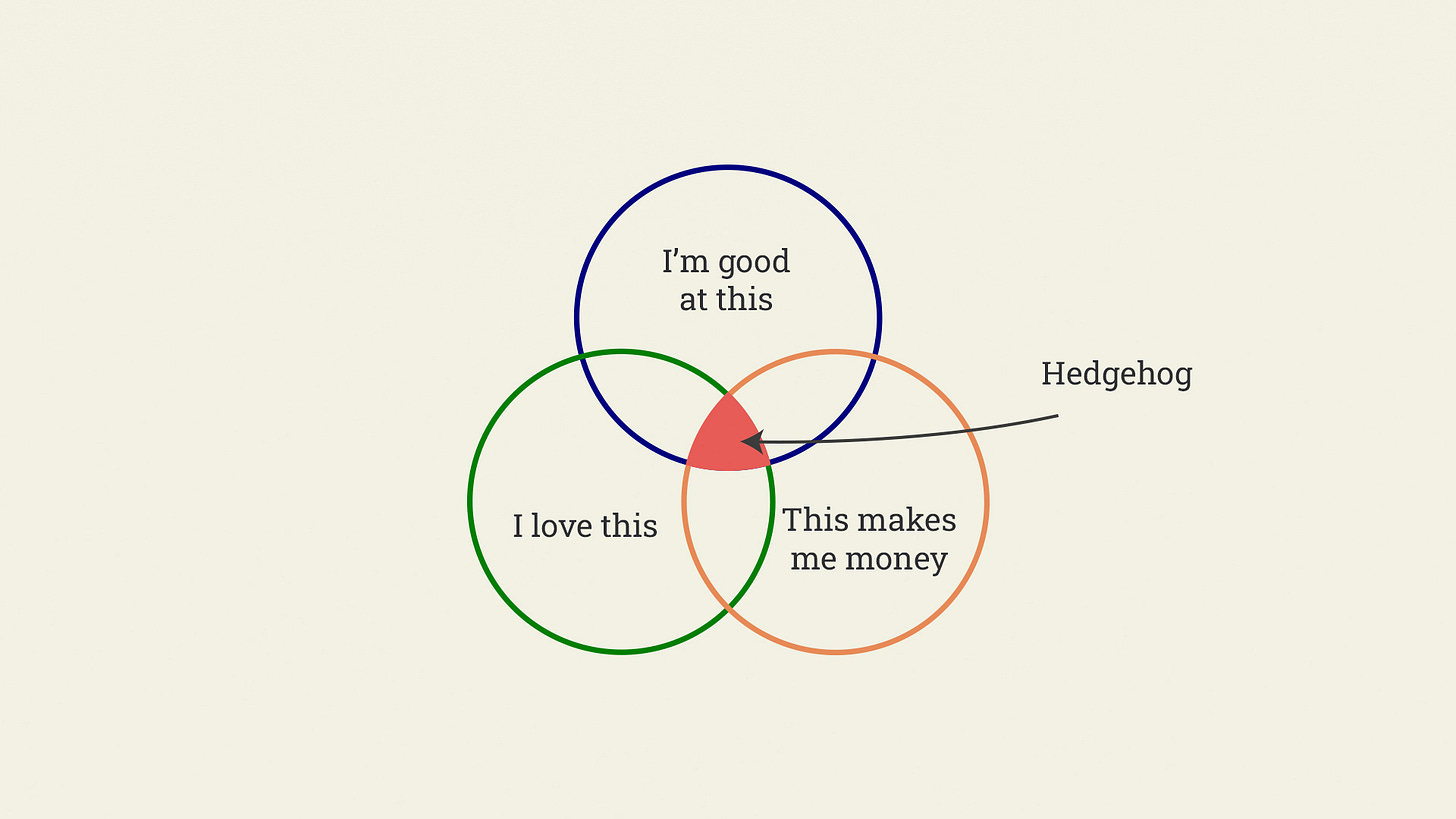
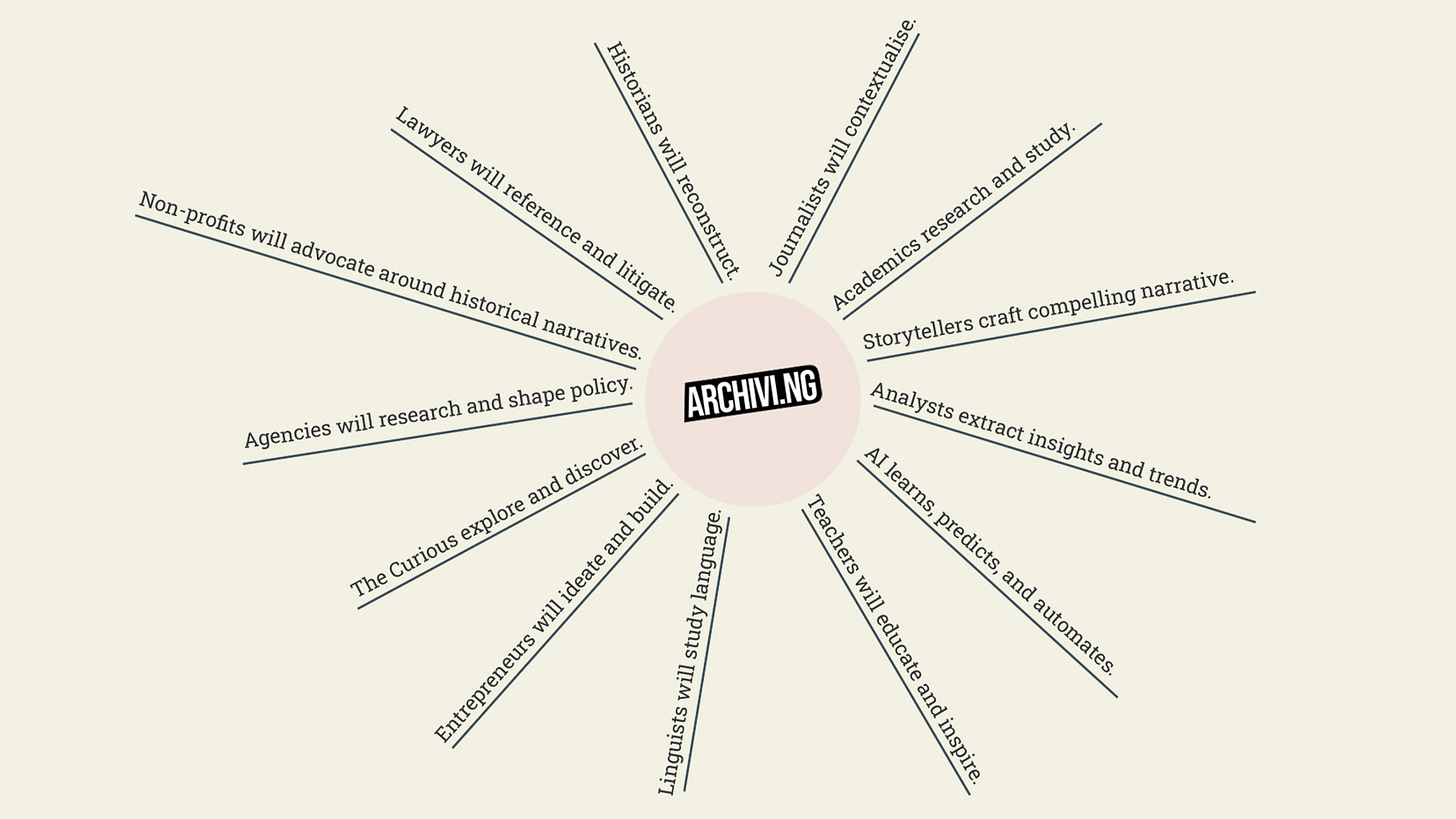
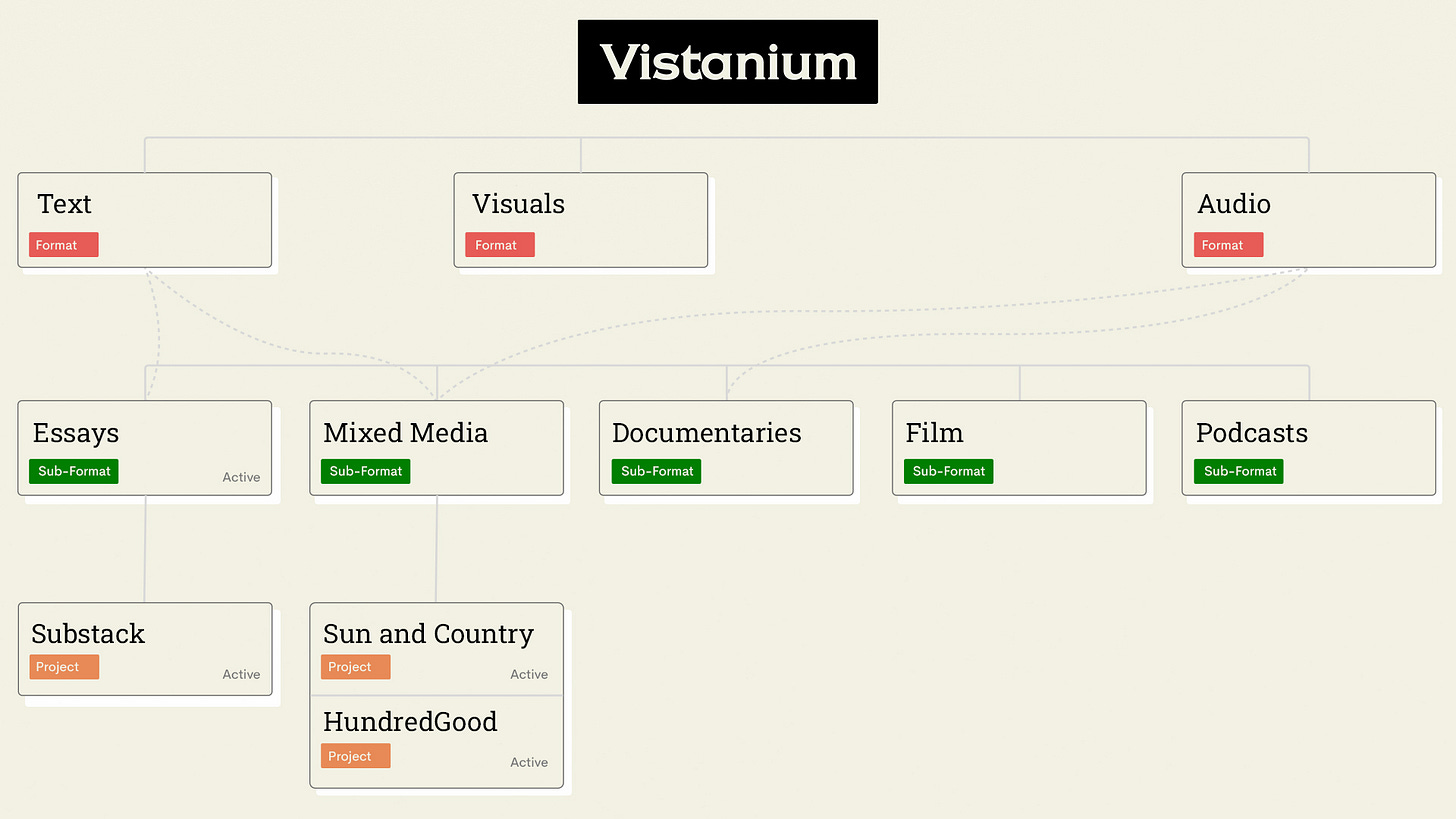
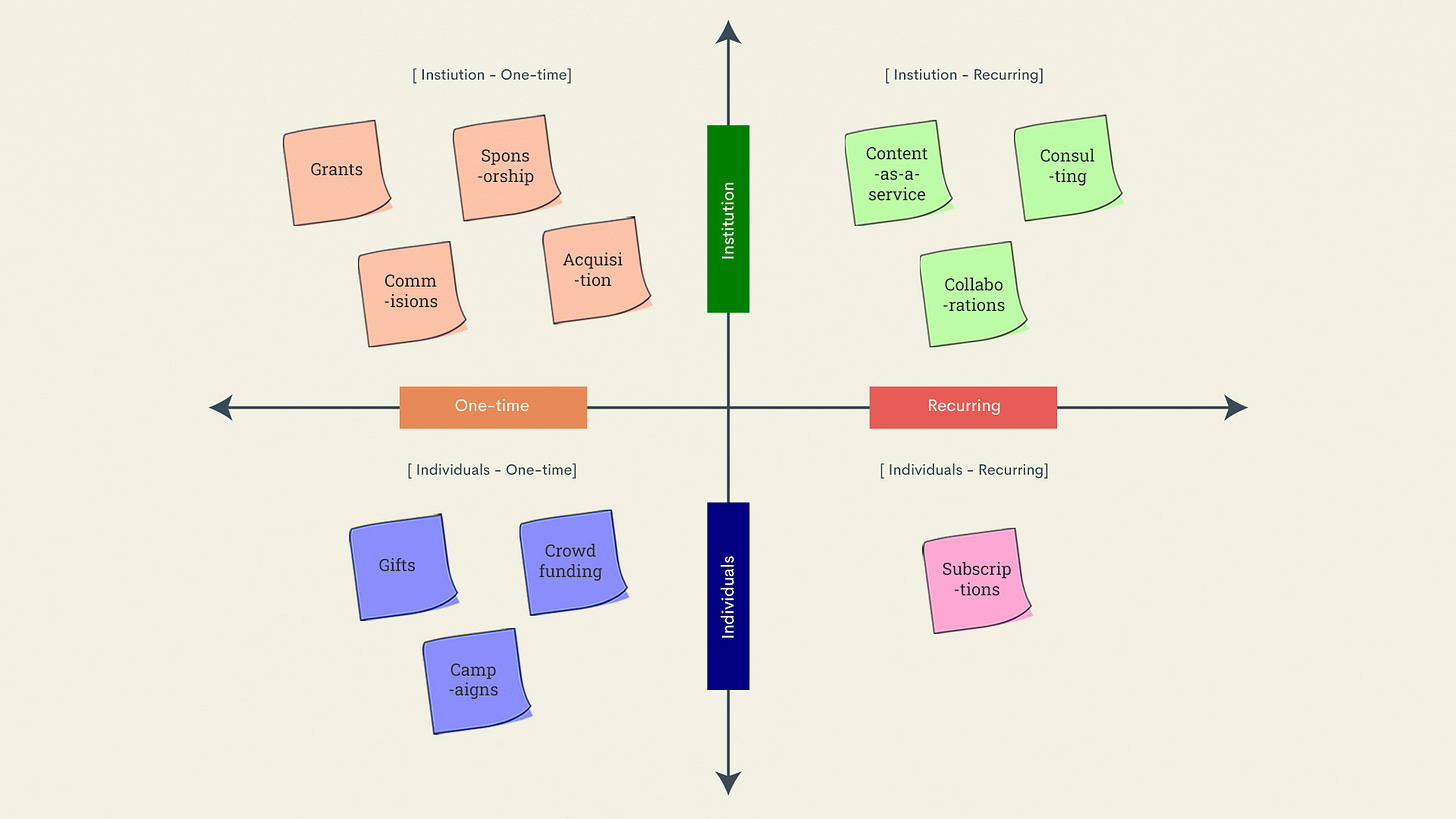
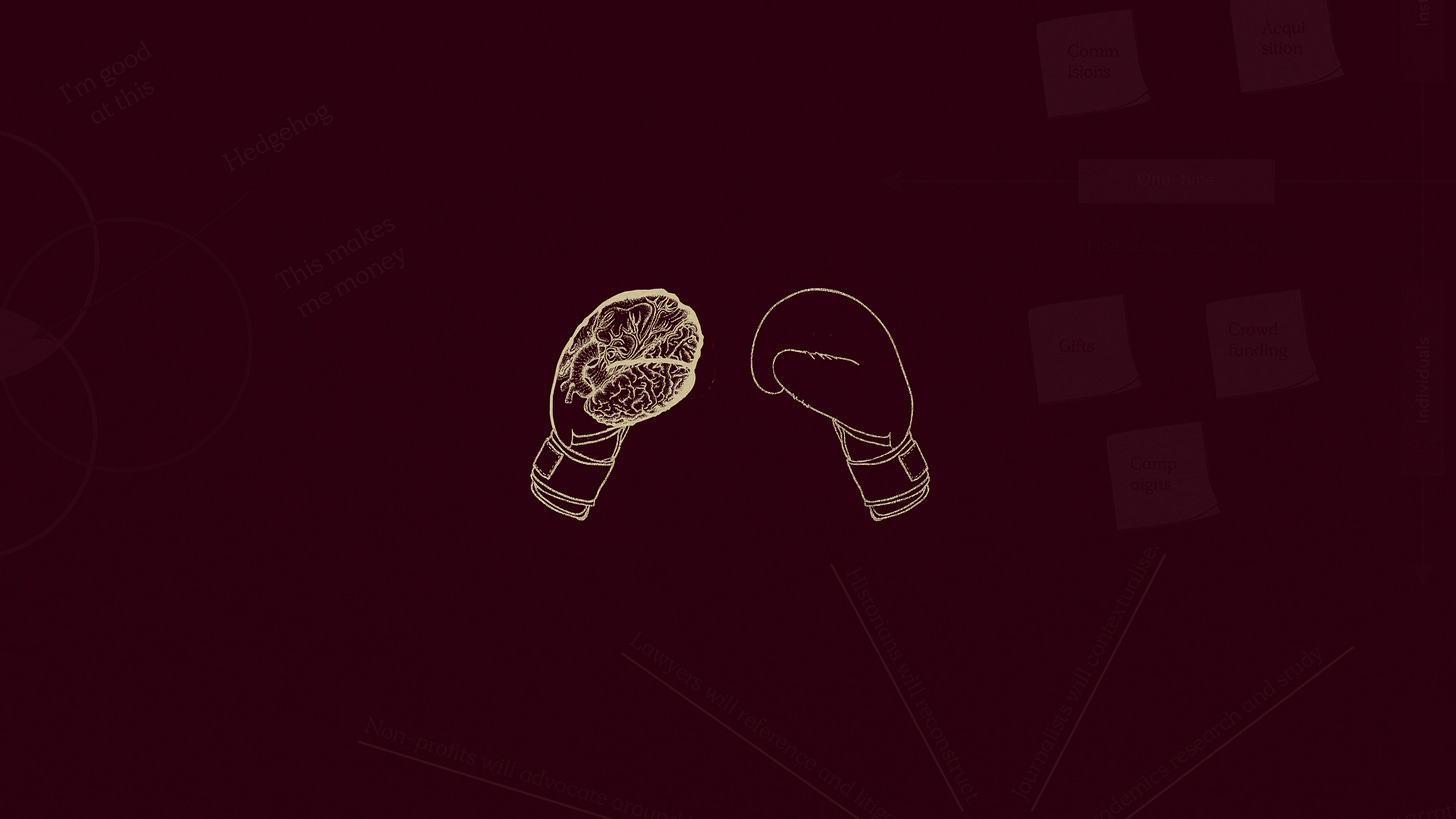
This was brilliantly written. Your vision for Archivi.Ng and now, Visatanium is very clear and it’s important work that will make the world a better place. For us and for everyone that comes after us.
Rooting for you Fu,ad and looking forward to all that’s to come
We dey your back! Onwards!